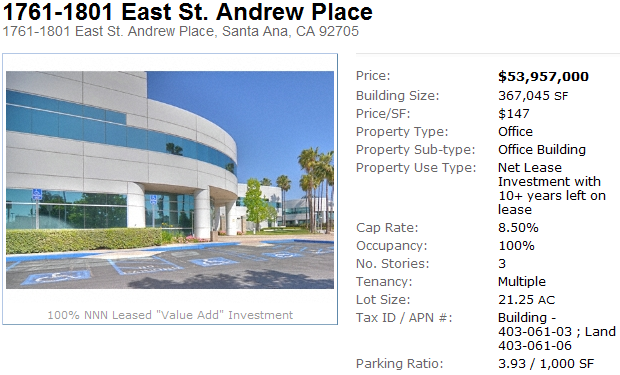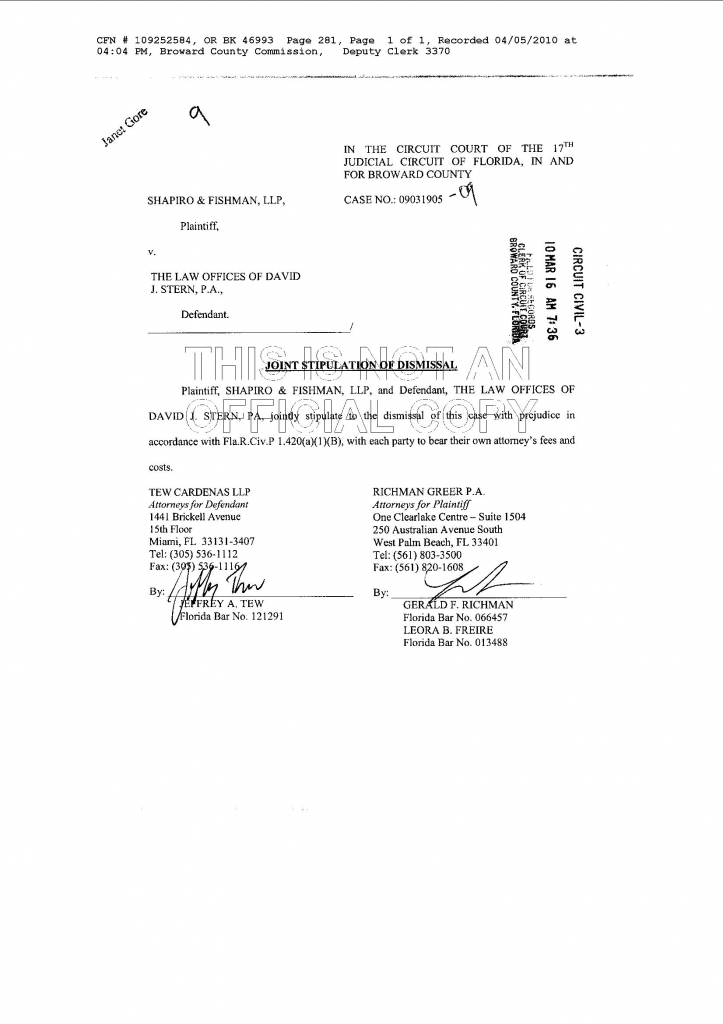UNIFORM COMMERCIAL CODE COMMITTEE
WHERE’S THE NOTE, WHO’S THE HOLDER: ENFORCEMENT OF PROMISSORY NOTE SECURED BY REAL ESTATE
HON. SAMUEL L. BUFFORD
UNITED STATES BANKRUPTCY JUDGE
CENTRAL DISTRICT OF CALIFORNIA
LOS ANGELES, CALIFORNIA
(FORMERLY HON.) R. GLEN AYERS
LANGLEY & BANACK
SAN ANTONIO, TEXAS
AMERICAN BANKRUPTCY INSTUTUTE
APRIL 3, 2009
WASHINGTON, D.C.
WHERE’S THE NOTE, WHO’S THE HOLDER
INTRODUCTION
In an era where a very large portion of mortgage obligations have been securitized, by assignment to a trust indenture trustee, with the resulting pool of assets being then sold as mortgage backed securities, foreclosure becomes an interesting exercise, particularly where judicial process is involved. We are all familiar with the securitization process. The steps, if not the process, is simple. A borrower goes to a mortgage lender. The lender finances the purchase of real estate. The borrower signs a note and mortgage or deed of trust. The original lender sells the note and assigns the mortgage to an entity that securitizes the note by combining the note with hundreds or thousands of similar obligation to create a package of mortgage backed securities, which are then sold to investors.
Unfortunately, unless you represent borrowers, the vast flow of notes into the maw of the securitization industry meant that a lot of mistakes were made. When the borrower defaults, the party seeking to enforce the obligation and foreclose on the underlying collateral sometimes cannot find the note. A lawyer sophisticated in this area has speculated to one of the authors that perhaps a third of the notes “securitized” have been lost or destroyed. The cases we are going to look at reflect the stark fact that the unnamed source’s speculation may be well-founded.
UCC SECTION 3-309
If the issue were as simple as a missing note, UCC §3-309 would provide a simple solution. A person entitled to enforce an instrument which has been lost, destroyed or stolen may enforce the instrument. If the court is concerned that some third party may show up and attempt to enforce the instrument against the payee, it may order adequate protection. But, and however, a person seeking to enforce a missing instrument must be a person entitled to enforce the instrument, and that person must prove the instrument’s terms and that person’s right to enforce the instrument. §3-309 (a)(1) & (b).
WHO’S THE HOLDER
Enforcement of a note always requires that the person seeking to collect show that it is the holder. A holder is an entity that has acquired the note either as the original payor or transfer by endorsement of order paper or physical possession of bearer paper. These requirements are set out in Article 3 of the Uniform Commercial Code, which has been adopted in every state, including Louisiana, and in the District of Columbia. Even in bankruptcy proceedings, State substantive law controls the rights of note and lien holders, as the Supreme Court pointed out almost forty (40) years ago in United States v. Butner, 440 U.S. 48, 54-55 (1979).
However, as Judge Bufford has recently illustrated, in one of the cases discussed below, in the bankruptcy and other federal courts, procedure is governed by the Federal Rules of Bankruptcy and Civil Procedure. And, procedure may just have an impact on the issue of “who,” because, if the holder is unknown, pleading and standing issues arise.
BRIEF REVIEW OF UCC PROVISIONS
Article 3 governs negotiable instruments – it defines what a negotiable instrument is and defines how ownership of those pieces of paper is transferred. For the precise definition, see § 3-104(a) (“an unconditional promise or order to pay a fixed amount of money, with or without interest . . . .”) The instrument may be either payable to order or bearer and payable on demand or at a definite time, with or without interest.
Ordinary negotiable instruments include notes and drafts (a check is a draft drawn on a bank). See § 3-104(e).
Negotiable paper is transferred from the original payor by negotiation. §3-301. “Order paper” must be endorsed; bearer paper need only be delivered. §3-305. However, in either case, for the note to be enforced, the person who asserts the status of the holder must be in possession of the instrument. See UCC § 1-201 (20) and comments.
The original and subsequent transferees are referred to as holders. Holders who take with no notice of defect or default are called “holders in due course,” and take free of many defenses. See §§ 3-305(b).
The UCC says that a payment to a party “entitled to enforce the instrument” is sufficient to extinguish the obligation of the person obligated on the instrument. Clearly, then, only a holder – a person in possession of a note endorsed to it or a holder of bearer paper – may seek satisfaction or enforce rights in collateral such as real estate.
NOTE: Those of us who went through the bank and savings and loan collapse of the 1980’s are familiar with these problems. The FDIC/FSLIC/RTC sold millions of notes secured and unsecured, in bulk transactions. Some notes could not be found and enforcement sometimes became a problem. Of course, sometimes we are forced to repeat history. For a recent FDIC case, see Liberty Savings Bank v. Redus, 2009 WL 41857 (Ohio App. 8 Dist.), January 8, 2009.
THE RULES
Judge Bufford addressed the rules issue this past year. See In re Hwang, 396 B.R. 757 (Bankr. C. D. Cal. 2008). First, there are the pleading problems that arise when the holder of the note is unknown. Typically, the issue will arise in a motion for relief from stay in a bankruptcy proceeding.
According F.R.Civ. Pro. 17, “[a]n action must be prosecuted in the name of the real party in interest.” This rule is incorporated into the rules governing bankruptcy procedure in several ways. As Judge Bufford has pointed out, for example, in a motion for relief from stay, filed under F.R.Bankr.Pro. 4001 is a contested matter, governed by F. R. Bankr. P. 9014, which makes F.R. Bankr. Pro. 7017 applicable to such motions. F.R. Bankr. P. 7017 is, of course, a restatement of F.R. Civ. P. 17. In re Hwang, 396 B.R. at 766. The real party in interest in a federal action to enforce a note, whether in bankruptcy court or federal district court, is the owner of a note. (In securitization transactions, this would be the trustee for the “certificate holders.”) When the actual holder of the note is unknown, it is impossible – not difficult but impossible – to plead a cause of action in a federal court (unless the movant simply lies about the ownership of the note). Unless the name of the actual note holder can be stated, the very pleadings are defective.
STANDING
Often, the servicing agent for the loan will appear to enforce the note. Assume that the servicing agent states that it is the authorized agent of the note holder, which is “Trust Number 99.” The servicing agent is certainly a party in interest, since a party in interest in a bankruptcy court is a very broad term or concept. See, e.g., Greer v. O’Dell, 305 F.3d 1297, 1302-03 (11th Cir. 2002). However, the servicing agent may not have standing: “Federal Courts have only the power authorized by Article III of the Constitutions and the statutes enacted by Congress pursuant thereto. … [A] plaintiff must have Constitutional standing in order for a federal court to have jurisdiction.” In re Foreclosure Cases, 521 F.Supp. 3d 650, 653 (S.D. Ohio, 2007) (citations omitted).
But, the servicing agent does not have standing, for only a person who is the holder of the note has standing to enforce the note. See, e.g., In re Hwang, 2008 WL 4899273 at 8.
The servicing agent may have standing if acting as an agent for the holder, assuming that the agent can both show agency status and that the principle is the holder. See, e.g., In re Vargas, 396 B.R. 511 (Bankr. C.D. Cal. 2008) at 520.
A BRIEF ASIDE: WHO IS MERS?
For those of you who are not familiar with the entity known as MERS, a frequent participant in these foreclosure proceedings:
MERS is the “Mortgage Electronic Registration System, Inc. “MERS is a mortgage banking ‘utility’ that registers mortgage loans in a book entry system so that … real estate loans can be bought, sold and securitized, just like Wall Street’s book entry utility for stocks and bonds is the Depository Trust and Clearinghouse.” Bastian, “Foreclosure Forms”, State. Bar of Texas 17th Annual Advanced Real Estate Drafting Course, March 9-10, 2007, Dallas, Texas. MERS is enormous. It originates thousands of loans daily and is the mortgagee of record for at least 40 million mortgages and other security documents. Id.
MERS acts as agent for the owner of the note. Its authority to act should be shown by an agency agreement. Of course, if the owner is unknown, MERS cannot show that it is an authorized agent of the owner.
RULES OF EVIDENCE – A PRACTICAL PROBLEM
This structure also possesses practical evidentiary problems where the party asserting a right to foreclose must be able to show a default. Once again, Judge Bufford has addressed this issue. At In re Vargas, 396 B.R. at 517-19. Judge Bufford made a finding that the witness called to testify as to debt and default was incompetent. All the witness could testify was that he had looked at the MERS computerized records. The witness was unable to satisfy the requirements of the Federal Rules of Evidence, particularly Rule 803, as applied to computerized records in the Ninth Circuit. See id. at 517-20. The low level employee could really only testify that the MERS screen shot he reviewed reflected a default. That really is not much in the way of evidence, and not nearly enough to get around the hearsay rule.
FORECLOSURE OR RELIEF FROM STAY
In a foreclosure proceeding in a judicial foreclosure state, or a request for injunctive relief in a non-judicial foreclosure state, or in a motion for relief proceeding in a bankruptcy court, the courts are dealing with and writing about the problems very frequently.
In many if not almost all cases, the party seeking to exercise the rights of the creditor will be a servicing company. Servicing companies will be asserting the rights of their alleged principal, the note holder, which is, again, often going to be a trustee for a securitization package. The mortgage holder or beneficiary under the deed of trust will, again, very often be MERS.
Even before reaching the practical problem of debt and default, mentioned above, the moving party must show that it holds the note or (1) that it is an agent of the holder and that (2) the holder remains the holder. In addition, the owner of the note, if different from the holder, must join in the motion.
Some states, like Texas, have passed statutes that allow servicing companies to act in foreclosure proceedings as a statutorily recognized agent of the noteholder. See, e.g., Tex. Prop. Code §51.0001. However, that statute refers to the servicer as the last entity to whom the debtor has been instructed to make payments. This status is certainly open to challenge. The statute certainly provides nothing more than prima facie evidence of the ability of the servicer to act. If challenged, the servicing agent must show that the last entity to communicate instructions to the debtor is still the holder of the note. See, e.g., HSBC Bank, N.A. v. Valentin, 2l N.Y. Misc. 3d 1123(A), 2008 WL 4764816 (Table) (N.Y. Sup.), Nov. 3, 2008. In addition, such a statute does not control in federal court where Fed. R. Civ. P. 17 and 19 (and Fed. R. Bankr. P. 7017 and 7019) apply.
SOME RECENT CASE LAW
These cases are arranged by state, for no particular reason.
Massachusetts
In re Schwartz, 366 B.R.265 (Bankr. D. Mass. 2007)
Schwartz concerns a Motion for Relief to pursue an eviction. Movant asserted that the property had been foreclosed upon prior to the date of the bankruptcy petition. The pro se debtor asserted that the Movant was required to show that it had authority to conduct the sale. Movant, and “the party which appears to be the current mortgagee…” provided documents for the court to review, but did not ask for an evidentiary hearing. Judge Rosenthal sifted through the documents and found that the Movant and the current mortgagee had failed to prove that the foreclosure was properly conducted.
Specifically, Judge Rosenthal found that there was no evidence of a proper assignment of the mortgage prior to foreclosure. However, at footnote 5, Id. at 268, the Court also finds that there is no evidence that the note itself was assigned and no evidence as to who the current holder might be.
Nosek v. Ameriquest Mortgage Company (In re Nosek), 286 Br. 374 (Bankr D Mass. 2008).
Almost a year to the day after Schwartz was signed, Judge Rosenthal issued a second opinion. This is an opinion on an order to show cause. Judge Rosenthal specifically found that, although the note and mortgage involved in the case had been transferred from the originator to another party within five days of closing, during the five years in which the chapter 13 proceeding was pending, the note and mortgage and associated claims had been prosecuted by Ameriquest which has represented itself to be the holder of the note and the mortgage. Not until September of 2007 did Ameriquest notify the Court that it was merely the servicer. In fact, only after the chapter 13 bankruptcy had been pending for about three years was there even an assignment of the servicing rights. Id. at 378.
Because these misrepresentations were not simple mistakes: as the Court has noted on more than one occasion, those parties who do not hold the note of mortgage do not service the mortgage do not have standing to pursue motions for leave or other actions arising form the mortgage obligation. Id at 380.
As a result, the Court sanctioned the local law firm that had been prosecuting the claim $25,000. It sanctioned a partner at that firm an additional $25,000. Then the Court sanctioned the national law firm involved $100,000 and ultimately sanctioned Wells Fargo $250,000. Id. at 382-386.
In re Hayes, 393 B.R. 259 (Bankr. D. Mass. 2008).
Like Judge Rosenthal, Judge Feeney has attacked the problem of standing and authority head on. She has also held that standing must be established before either a claim can be allowed or a motion for relief be granted.
Ohio
In re Foreclosure Cases, 521 F.Supp. 2d (S.D. Ohio 2007).
Perhaps the District Court’s orders in the foreclosure cases in Ohio have received the most press of any of these opinions. Relying almost exclusively on standing, the Judge Rose has determined that a foreclosing party must show standing. “[I]n a foreclosure action, the plaintiff must show that it is the holder of the note and the mortgage at the time that the complaint was filed.” Id. at 653.
Judge Rose instructed the parties involved that the willful failure of the movants to comply with the general orders of the Court would in the future result in immediate dismissal of foreclosure actions.
Deutsche Bank Nat’l Trust Co. v. Steele, 2008 WL 111227 (S.D. Ohio) January 8, 2008.
In Steele, Judge Abel followed the lead of Judge Rose and found that Deutsche Bank had filed evidence in support of its motion for default judgment indicating that MERS was the mortgage holder. There was not sufficient evidence to support the claim that Deutsche Bank was the owner and holder of the note as of that date. Following In re Foreclosure Cases, 2007 WL 456586, the Court held that summary judgment would be denied “until such time as Deutsche Bank was able to offer evidence showing, by a preponderance of evidence, that it owned the note and mortgage when the complaint was filed.” 2008 WL 111227 at 2. Deutsche Bank was given twenty-one days to comply. Id.
Illinois
U.S. Bank, N.A. v. Cook, 2009 WL 35286 (N.D. Ill. January 6, 2009).
Not all federal district judges are as concerned with the issues surrounding the transfer of notes and mortgages. CookId. at 3. In fact, a review of the evidence submitted by U.S. Bank showed only that it was the alleged trustee of the securitization pool. U.S. Bank relied exclusively on the “pooling and serving agreement” to show that it was the holder of the note. Id. is a very pro lender case and, in an order granting a motion for summary judgment, the Court found that Cook had shown no “countervailing evidence to create a genuine issue of facts.”
Under UCC Article 3, the evidence presented in Cook was clearly insufficient.
New York
HSBC Bank USA, N.A. v. Valentin, 21 Misc. 3D 1124(A), 2008 WL 4764816 (Table) (N.Y. Sup.) November 3, 2008. In Valentin, the New York court found that, even though given an opportunity to, HSBC did not show the ownership of debt and mortgage. The complaint was dismissed with prejudice and the “notice of pendency” against the property was cancelled.
Note that the Valentin case does not involve some sort of ambush. The Court gave every HSBC every opportunity to cure the defects the Court perceived in the pleadings.
California
In re Vargas, 396 B.R. 511 (Bankr. C.D. Cal. 2008)
and
In re Hwang, 396 B.R. 757 (Bankr. C.D. Cal. 2008)
These two opinions by Judge Bufford have been discussed above. Judge Bufford carefully explores the related issues of standing and ownership under both federal and California law.
Texas
In re Parsley, 384 B.R. 138 (Bankr. S.D. Tex. 2008)
and
In re Gilbreath, 395 B.R. 356 (Bankr. S.D. Tex. 2008)
These two recent opinions by Judge Jeff Bohm are not really on point, but illustrate another thread of cases running through the issues of motions for relief from stay in bankruptcy court and the sloppiness of loan servicing agencies. Both of these cases involve motions for relief that were not based upon fact but upon mistakes by servicing agencies. Both opinions deal with the issue of sanctions and, put simply, both cases illustrate that Judge Bohm (and perhaps other members of the bankruptcy bench in the Southern District of Texas) are going to be very strict about motions for relief in consumer cases.
SUMMARY
The cases cited illustrate enormous problems in the loan servicing industry. These problems arise in the context of securitization and illustrate the difficulty of determining the name of the holder, the assignee of the mortgage, and the parties with both the legal right under Article 3 and the standing under the Constitution to enforce notes, whether in state court or federal court.
Interestingly, with the exception of Judge Bufford and a few other judges, there has been less than adequate focus upon the UCC title issues. The next round of cases may and should focus upon the title to debt instrument. The person seeking to enforce the note must show that:
(1) It is the holder of this note original by transfer, with all necessary rounds;
(2) It had possession of the note before it was lost;
(3) If it can show that title to the note runs to it, but the original is lost or destroyed, the holder must be prepared to post a bond;
(4) If the person seeking to enforce is an agent, it must show its agency status and that its principal is the holder of the note (and meets the above requirements).
Then, and only then, do the issues of evidence of debt and default and assignment of mortgage rights become relevant.
MORE INFO LINK
|
| UNIFORM COMMERCIAL CODE AND NOTE TRANSFERS AND DEED OF TRUST-1 |
















 Congressman Bob Filner leads rally to save woman’s Bonita home from foreclosure.“We’re going to stand together to change America,” said Rep. Filner. “We have a president who talked about hope. We have to give him strength. The banks have taken over both parties.” He called for changes in the law to protect those victimized by predatory lending practices.
Congressman Bob Filner leads rally to save woman’s Bonita home from foreclosure.“We’re going to stand together to change America,” said Rep. Filner. “We have a president who talked about hope. We have to give him strength. The banks have taken over both parties.” He called for changes in the law to protect those victimized by predatory lending practices. Ray Lutz (back) , who is running against Rep. Duncan Hunter, stands with Rep. Bob Filner (front)Ray Lutz, Democratic candidate in East County’s 52nd Congressional district, also stood with Filner and Villanueva at the rally. “I think this is going to be a big tidal wave of fighting back against banks,” Lutz told East County Magazine. “We’ve got to stop these foreclosures. If we stand together, we can get the government to help us, because they don’t have any spine unless we have a spine.”
Ray Lutz (back) , who is running against Rep. Duncan Hunter, stands with Rep. Bob Filner (front)Ray Lutz, Democratic candidate in East County’s 52nd Congressional district, also stood with Filner and Villanueva at the rally. “I think this is going to be a big tidal wave of fighting back against banks,” Lutz told East County Magazine. “We’ve got to stop these foreclosures. If we stand together, we can get the government to help us, because they don’t have any spine unless we have a spine.” Naa-Avorkor Okai, also facing foreclosure, says her bank falsified documents.Evictions of people like Naa-Anoror Okai and James Tillory. “I have proof that my bank changed my income, my marital status, and my ethnicity,” said Okai, who came out to show solidarity with Villanueva. After a Housing Commission worker found that the bank had falsified Fannie Mae documents before initiating foreclosure proceedings, Okai filed a lawsuit and sought help from Congresswoman Susan Davis (D-San Diego).
Naa-Avorkor Okai, also facing foreclosure, says her bank falsified documents.Evictions of people like Naa-Anoror Okai and James Tillory. “I have proof that my bank changed my income, my marital status, and my ethnicity,” said Okai, who came out to show solidarity with Villanueva. After a Housing Commission worker found that the bank had falsified Fannie Mae documents before initiating foreclosure proceedings, Okai filed a lawsuit and sought help from Congresswoman Susan Davis (D-San Diego).















 Continue reading…..
Continue reading…..






Recent Comments